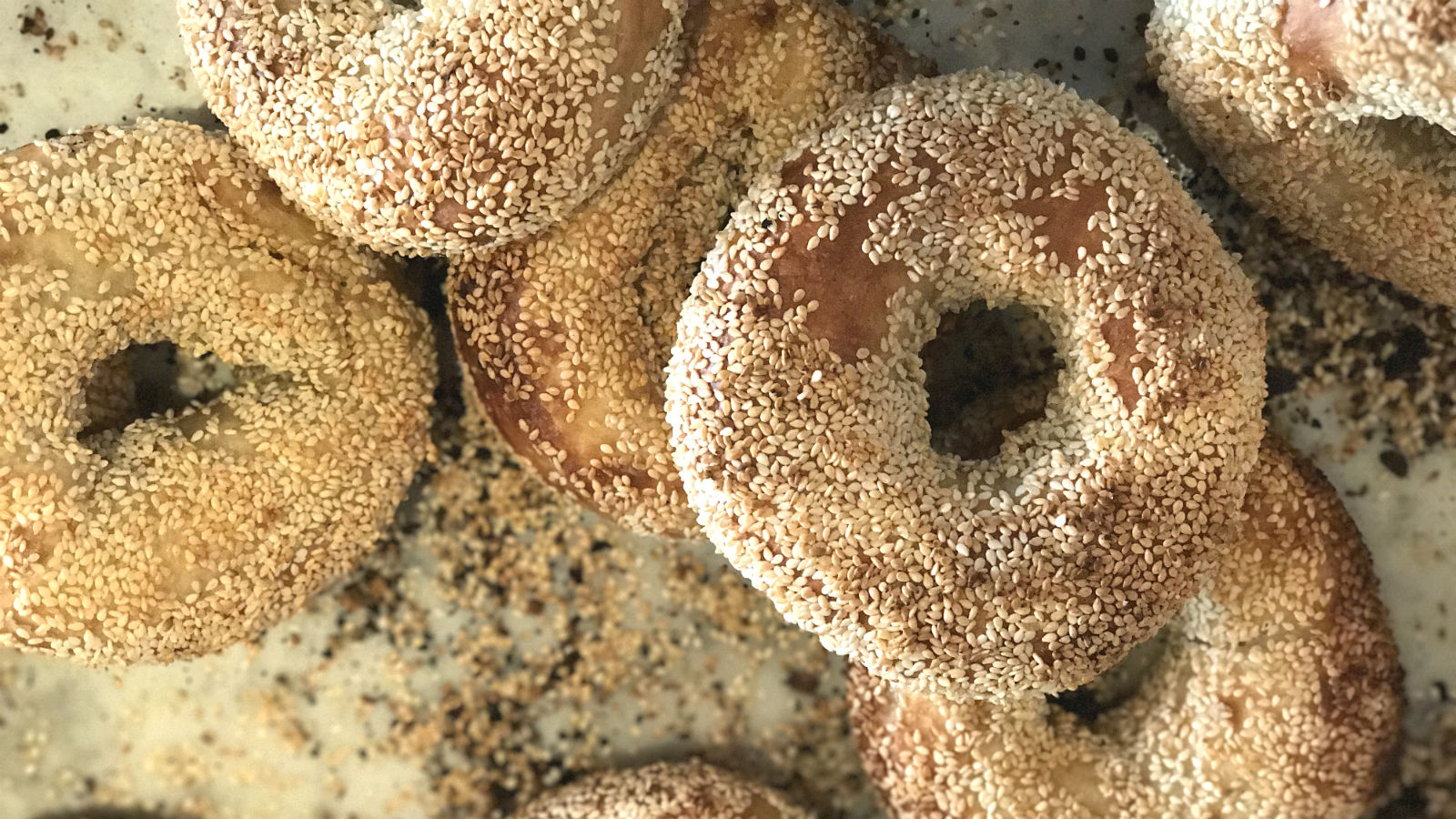Depending on where you hang your shtreimel, in the U.S., a good bagel can be hard to find.
But imagine a time in which any bagels — even those mediocre rings of bread masquerading as — were only available in a few specialty shops in a handful of American cities. Less than a century ago, that was the case.
So who and what is responsible for the bagel boom? The short answer may surprise you: freezers, a multigenerational family of Polish Jews, and Nazi gold.
When a large wave of Eastern European immigrants came to the United States at the turn of the 20th century, so too did the bagel (originally “beigel”), whose creation is credited to bakers in small towns across Poland.
The Nosher celebrates the traditions and recipes that have brought Jews together for centuries. Donate today to keep The Nosher's stories and recipes accessible to all.
The bagel was primarily popular in ethnic enclaves in metropolises across the Eastern seaboard — until the fateful convergence of one groundbreaking technological development and one son’s seemingly risky decision. The former was the rise of frozen food culture, thanks to the proliferation of affordable freezers and refrigerators in American homes beginning in the early 1950s. The latter was Murray Lender’s resolution in 1960 to bring the bagels made by the small New Haven bakery run by his father and three uncles (all immigrants from Poland) to consumers by selling frozen (and, later, pre-sliced) bagels through large supermarket chains.
So “foreign” was the bagel to the American public that Lender’s initially marketed their product in a now-famous ad campaign as “Jewish English muffins” to make them more accessible to consumers.
Sales surged, and in 1984, Kraft bought the company and began promoting the pairing of their Philadelphia Cream Cheese with Lender’s bagel, furthering boosting their popularity. Following a series of sales and acquisitions, Lender’s is now owned by Pinnacle Foods. Its revenues remain in the double-digit millions.
Not everyone, however, embraced the Lender’s bagel phenomenon. Many food critics and purists decried this form of mass-produced bagel as lackluster in quality and claimed that only fresh bagels were “the real thing.”
But such voices of dissent were the minority, and the success of Lender’s Bagels inspired the launch of two major national chains of bagel bakeries that remain wildly successful today.
One is Bruegger’s, established in 1983 by Michael Dressell and Nordahl Brue, who grew their lone Troy, New York outpost into a series of highly profitable shops. In the past two decades, the business expanded to more than 250 locations across the United States.
The ascent of America’s other bagel behemoth, Einstein Bros., has darker underpinnings. Its origins were innocuous enough: Boston Market (née Boston Chicken) created Einstein Bros. company in 1995 to sell breakfast foods, then began acquiring regionally successful bagel chains under its corporate umbrella.
But in 2014, the relatively sunny history of Einstein Bros. turned shady when its parent company Einstein Noah Restaurant Group was acquired by BDT Capital Partners and the JAB Holding Company. In 2019, it was revealed that JAB’s principal stakeholders, Albert Reinmann Sr. and Albert Reinmann Jr., elderly patriarchs of one of the richest families in Germany were … I think you know what’s coming … Nazis.
Not Hitler sympathizers, not card-carrying NSDAP members, but full-blown anti-Semites and major supporters of The Third Reich who historians have conclusively demonstrated used 175 forced laborers to work in their factories and family villa during World War II.
The “official” response of the Reinmann family has been to offer to donate roughly $11 million (0.03% of their wealth) to American charities.
Yikes. Fortunately, the chain is better at making bagels than they are handling PR crises, and while this news may make some lose their appetite, I won’t give up noshing on Einstein Bros.’ definitely unorthodox but decidedly delectable six-cheese bagel.
Wherever your loyalties lie with regard to procuring your boiled and baked rings of dough, take comfort in knowing you’re not alone in loving this once-obscure hole-y culinary invention with your whole heart.



